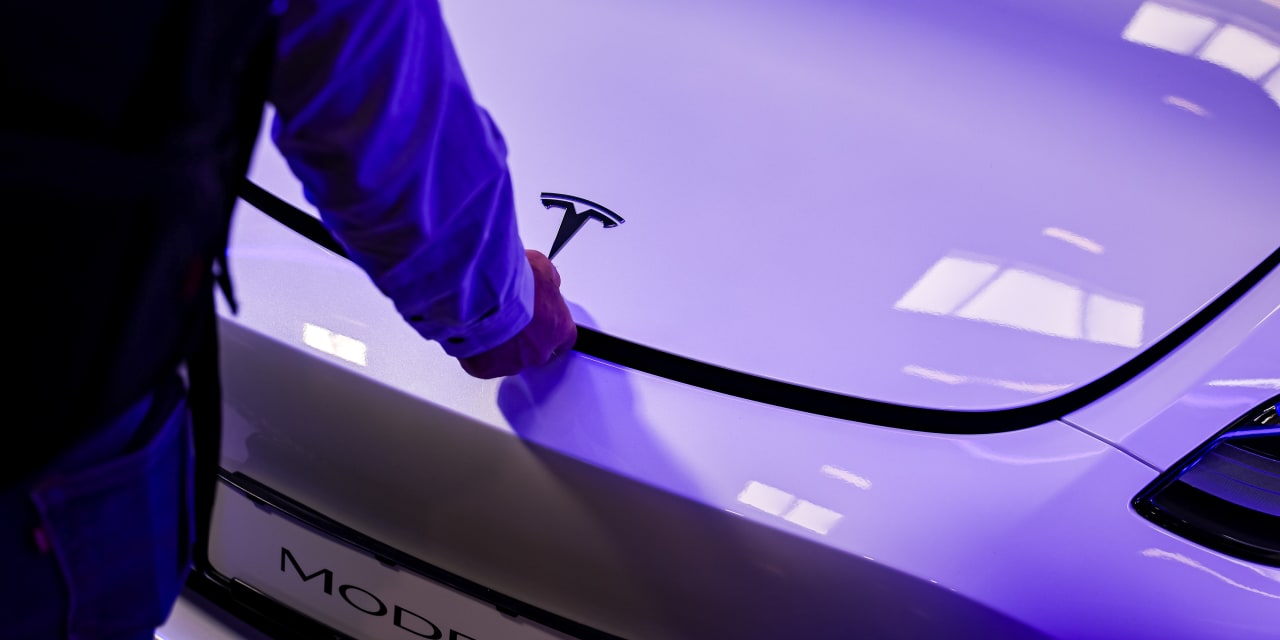It might seem odd, but sometimes analysts prefer covering companies with no sales or earnings. With a blank slate, it’s possible to spin narratives about total addressable market sizes along with hope about what might be. There is no better example than the electric-vehicle stocks and
Tesla.
Barron’s has navigated such uncharted territory. We wrote about Rivian Automotive (ticker: RIVN) in November 2021 at the time of its initial public offering, basing our story on how the company might do in the U.S. truck and SUV market. The company had a targeted $64 billion valuation at the time, although there were no profits on the near-term horizon to back up that number, only ideas. Even now, Wall Street doesn’t project full-year profitability for Rivian until 2028, according to FactSet.
Still, the IPO eventually priced 153 million shares at $78 each, giving Rivian a valuation closer to $70 billion, eclipsing the $64 billion target. A few days after the IPO, shares surged to as high as $179.47. Those times didn’t last. Now Rivian, including cash and debt, is worth only about $16 billion today. It’s risky to rely only on stories.
RBC analyst Tom Narayan launched coverage of
Lucid Group
(ticker: LCID) stock on Friday with a Hold rating and a $6 price target. That values Lucid, including debt, at roughly $14 billion. Narayan’s not a Lucid bull, but he’s upbeat on the potential licensing of its EV tech to other automakers, a business that could be worth $15 a share, or about $35 billion in market value.
“Our theoretical math suggests that mass market [automakers] stand to add 50% to 70% to [EV operating profits] if adopting Lucid tech,” added the analyst.
That’s a lot, more than auto parts giant
Magna International
(MGA) and more than fast-growing autonomous driving firm
Mobileye
(MBLY). Of course, going from 1% to 1.5% operating profit margin is a 50% improvement. There isn’t really a precedent for an automaker generating that much value from licensing though. It’s only an idea. Lucid, like Rivain, isn’t profitable either.
Lucid, including cash and debt, is valued at about 17 times estimated 2023 sales. Rivian is valued at closer to 4 times sales. Why the gap? Who knows. There are no profits to back up valuations.
VinFast Auto
stock (VFS) is trading for roughly 22 times estimated 2023 sales, more than Lucid or Rivian. That’s after shares have dropped more than 80% in just a few days. Why? Just because.
Tesla stock (TSLA) trades for almost 9 times estimated 2023 sales. That doesn’t matter though. Tesla makes money. The stock trades for about 53 times estimated 2024 earnings per share. The
S&P 500
and
Nasdaq Composite
trade for roughly 18 times and 26 times, respectively.
Investors can ask themselves whether that’s too much or too little based on projected earnings growth. Tesla earnings are expected to grow at about 25% a year on average for the coming three years. More bullish estimates have Tesla earnings growth at about 40% a year over that span.
Profits benefit companies’ stories, too. “Tesla’s valuation dwarfs any other car company simply because it is the only auto manufacturer we know will survive the industry’s transition to electric vehicles,” wrote DataTrek co-founder Nicholas Colas in a Friday report. “One can argue about what that is worth, or how to value the promise of autonomous driving. But being a clear winner in an uncertain industrial landscape is worth a lot.”
Being the EV leader is part of that 53 times earnings multiple.
Investors can’t escape having to ask “what if” and projecting the future, especially for new start-ups that are trying to become the next Tesla. More often than not, aggressive projections do not work out.
Between 1990 and 2020 about 55% of all U.S. stocks underperformed one-month Treasury bills in compounded returns. That result is a reminder that investors might want to weigh earnings a little more heavily when evaluating new ideas.
Write to Al Root at [email protected]
Read the full article here




